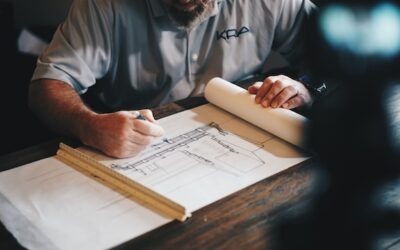First extended to the construction industry back in March 2021, rules for domestic VAT reverse charges were rolled out for suppliers of building and construction services.
The reverse charge has a large impact on the way your company runs and manages its VAT returns and cashflow. If you aren’t already familiar with these changes, here’s what you need to know.
What are the rules?
As mentioned previously, since the rule changed on 1 March 2021, when a VAT-registered business supplies a VAT-registered construction business, they will be required to issue a VAT invoice saying the service is subject to a reverse charge. This will also mean that no VAT will be added to the invoice.
The recipient of the services will not pay VAT to the supplier, but will have to show it on a VAT return – which can then be recovered as input tax. It is essential your supplier has a valid VAT number and you receive correct invoices with the list of services.
Similar to the construction industry scheme (CIS), which was put in place to address tax fraud, the VAT reverse charge has been put in place to make sure that VAT fraud is dramatically cut down in the industry.
What must and must not be reverse charged
There are official guidelines in place by the Government telling you which services must and must not be reverse charged. Among the services which must be are:
- Repairing, demolishing or extending structures
- Installing heating, lighting or power in any building or structure
- Painting or decorating the inside or outside of any building.
A full list of services can be found on the Government website, here.
The following services must not be reverse charged when supplied on their own:
- Drilling or extracting oil or natural gas
- Professional services from architects, landscape consultants or decoration consultants.
- The repairing or installation of artworks
- Installing security systems.
What should my business do?
The first thing you should do to make sure your business is following all the right steps is to check in with your accountant. They’ll know whether your accounting procedures are up to date, and know how to go about making all the relevant changes and calculations if you aren’t already taking the reverse charge into account.
If you are able to, you will need to discuss the possibility of moving your VAT returns to a monthly format. This will make it much easier for you to stay on top of your VAT obligations.
You should also check whether your company would be suitable for a flat rate scheme. You need to review supplies made to and received between VAT-registered contractors and determine whether they will be subject to the reverse charge post-March 2021.
If you weren’t taking the reverse charge into account, you might have paid too much VAT in your last return. By using our services, we can look at how much you have overpaid.
Get in touch
Now you know the basics, the next thing to do is to get in touch with the team at Fairman’s. We are here to help you and your construction business whenever you need us.




